South Africa
As South Africa’s dominant ruling party, the Africa National Congress (ANC), elects a new leader to replace Jacob Zuma this weekend, there are real questions as to whether the party will let the embattled president complete his term as South African president.
Speaking to a local news publication, Bheki Cele, an anti apartheid veteran and member of ANC’s National Executive Committee said President Zuma should have stepped down after a Constitutional Court ruling found him to ‘have failed in his duty to uphold the constitution’ on the issue of Nkandla.
The president had been accused of using government funds to upgrade his private residence in Nkandla, Kwa-Zulu Natal.
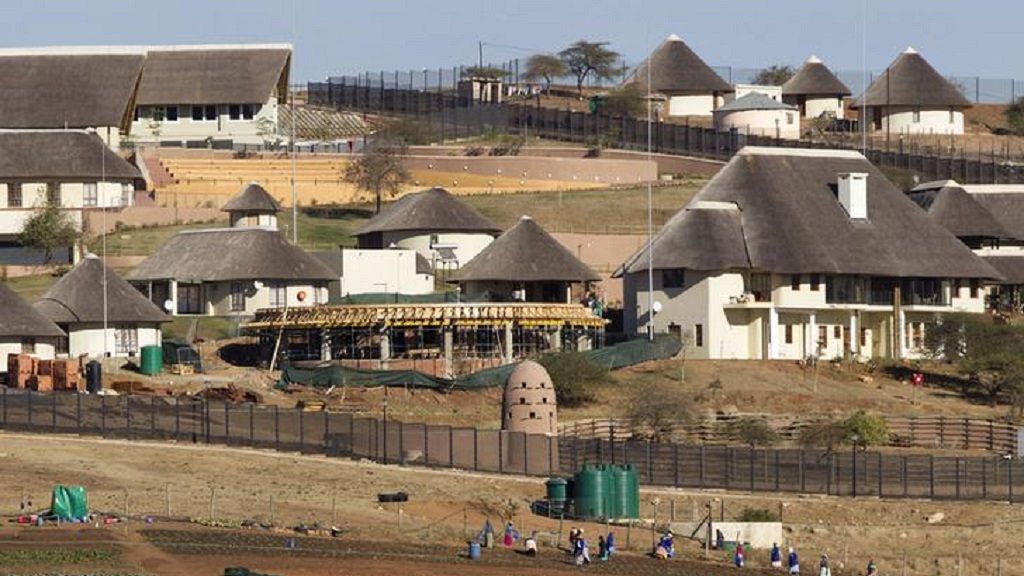
Cele believes that this final term of Zuma’s presidency has been so damaging to the ANC party which got its worst performance at the polls with a 54% return in the local polls last year.
Scandals like Nkandla, the Gupta family ‘state capture’ and the endless corruption charges have placed Zuma and the ANC in an unfamiliar vulnerable position.
South Africa’s deputy finance minister, Mcebisi Jonas unleashed the Gupta ‘state capture’ scandal when he revealed that he turned down a 600million rand ($44m) offer from the Gupta family, to take on the position of finance minister.
The allegations gave credence to claims that the Guptas were influencing state decisions and appointments. The Zumas and the Guptas have denied the allegations.
Asked whether he believes that Zuma should continue as president of the country in the run up to the 2019 elections, Cele hinted that it would be one of the decisions that the new ANC leadership will take after this weekend’s conference.
‘Well, that’s something that the incoming ANC will discuss. I am not going to pre-empt that. If I’m there, I know what I will say.’ Bheki Cele
It would not be the first time the ANC would be recalling its representative from the office of the president. In 2008, it was Jacob Zuma himself, freshly elected as president of the ANC, who caused the recall of President Thabo Mbeki before his term could expire, apparently because he had undermined the ANC president who was facing hundreds of corruption charges at the time.
Those charges have since resurfaced and are in court for consideration by the National Prosecution Authority.
In the past two weeks, President Zuma has been at the receiving end of two embarrassing court rulings regarding his appointment of Shaun Abrahams as state prosecutor and the establishment of an influence-peddling inquiry into allegations of state capture against himself and the Guptas.
Jacob Zuma is so vulnerable today that his own Deputy President and presidential aspirant in the ANC race, Cyril Ramaphosa has indicated that he would believe the rape allegations that were once leveled against him.
And yet this is the same Zuma, that has been challenged time and again, but like the proverbial cat with nine lives, he has seemingly survived every political and personal storm in his life.
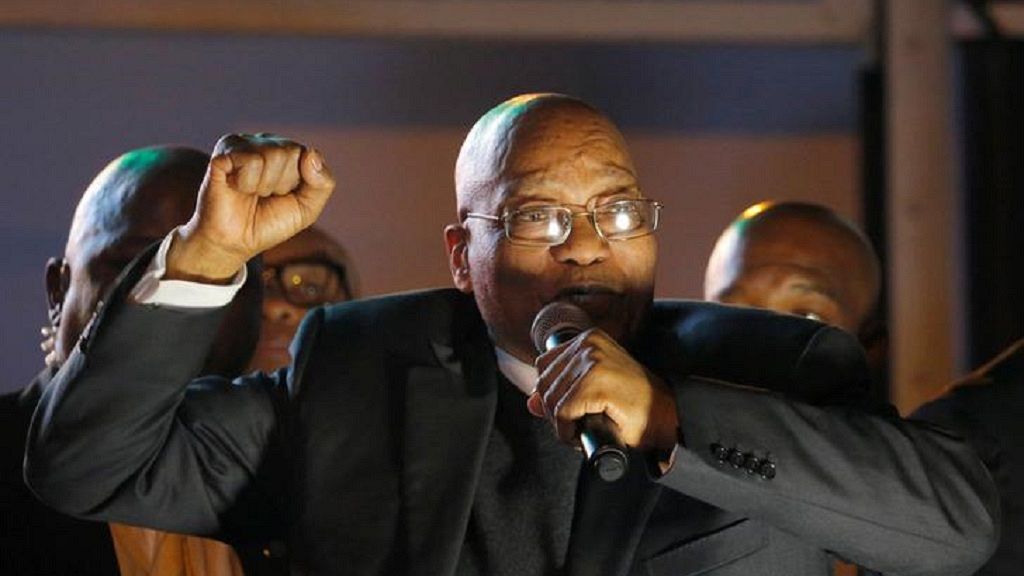
As the ANC votes to replace its affable yet controversial leader, we look back at Jacob Zuma’s political career that seems to be in free fall mode at the moment.
Jacob Zuma, the South African president with nine lives
Freedom fighter
Born on 12 April 1942 in Nkandla, Kwa-Zulu Natal, Zuma joined the ANC at the age of 17, becoming an active member of its military wing, Umkhonto We Sizwe, in 1962.
Convicted of conspiring to overthrow the apartheid government, Zuma was imprisoned for 10 years on the notorious Robben Island, alongside Nelson Mandela.
When he was freed from prison, Zuma left South Africa for Mozambique, then Zambia and rose through the ANC ranks to become a member of the executive committee.
He returned home in 1990 and was one of the ANC leaders negotiating with the white-minority government when the ban on ANC was removed.
His Zulu roots and charming personality are credit for having endeared him to South Africans throughout his long political career.
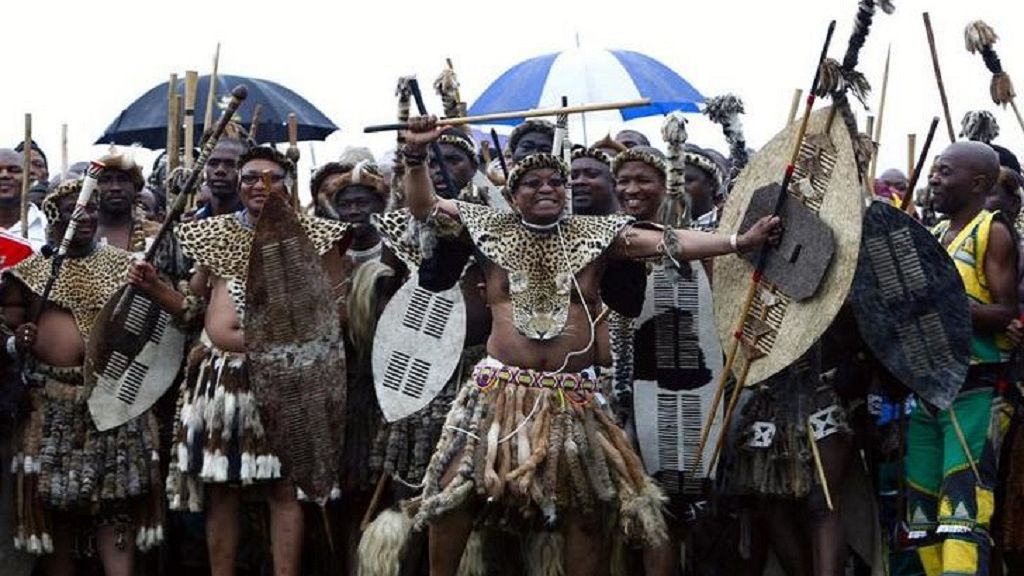
Zuma becomes ANC President
In 2007, Jacob Zuma clinched the ANC presidency at the party’s Polokwane elective conference. The position was won at the expense of the country’s president Thabo Mbeki who had fired Zuma from his position as Deputy President in 2005 after the latter was implicated in the corruption trial of his former financial advisor Schabir Shaik.
Zuma would go ahead to use his influence as ANC president to cause the recall of Thabo Mbeki as South Africa’s president. He would also contest and win the country’s presidency in 2009 after corruption charges against him were dropped by the National Prosecuting Authority in the same year.
The People’s President
Following his 2009 election as president of South Africa, Zuma would face his sternest test as the nation waited on him to deliver the radical economic transformation that he had promised.
When he reassured the international community that nothing was going to change in South Africa, many of his allies that had supported him on the basis that he would change the business and environment to empower young black Africans started to jump ship.
Notably, the vocal ANC Youth League leader Julius Malema severely criticised the president’s failure to deliver on campaign promises and was subsequently expelled from the party in 2012, just a few months before the party’s Mangaung elective conference where Zuma was elected for a second term.
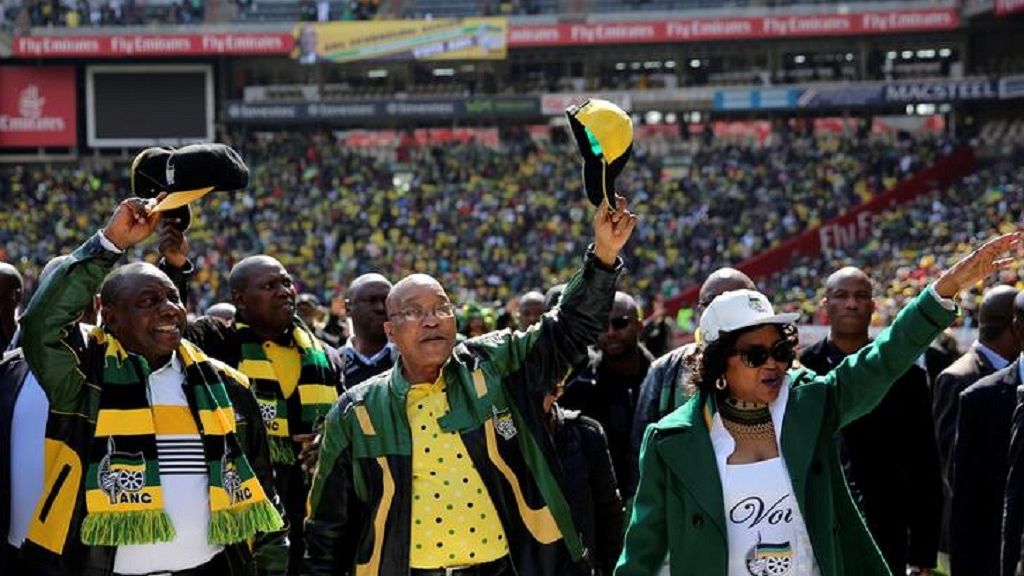
Fall from grace
Malema would go ahead to form the Economic Freedom Fighters (EFF) that have since become Zuma’s harshest and most ruthless critics.
It is the EFF that brought to the country’s attention the Nkandla scandal where Zuma was accused of using government funds to make ‘non-security’ modifications to his private residence in his native Kwa-Zulu Natal province.
The EFF took the matter to court which historically handed Zuma his biggest political defeat when it ruled that he had breached his oath of office by using government money to upgrade his private home in Nkandla. Zuma eventually repaid the money, but has struggled to regain his credibility as the country’s president.
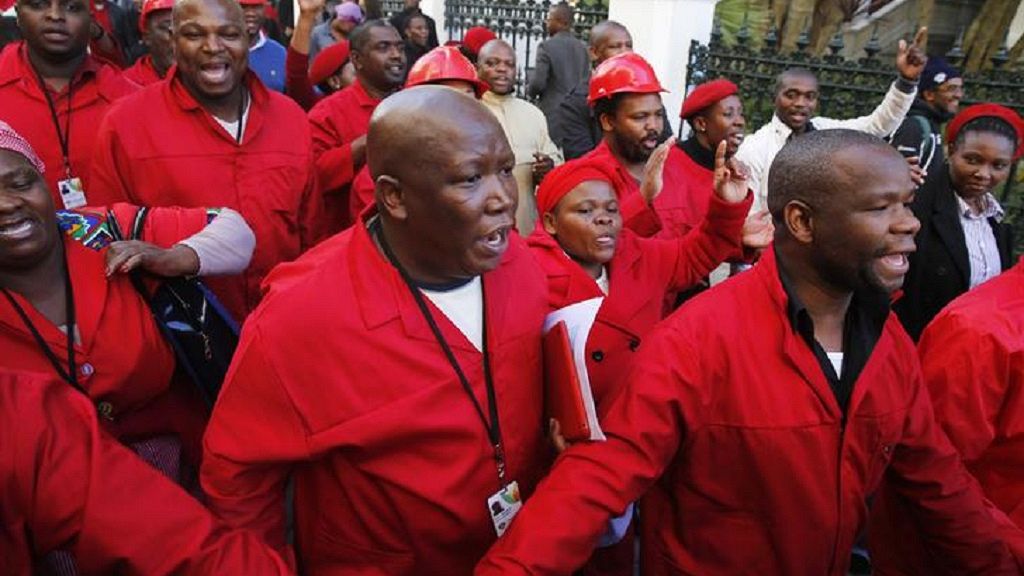
Zuma’s presidency was to be fundamentally shaken again by the infamous ‘state capture’ scandal involving the wealthy Gupta brothers. The country’s deputy finance minister Mcebisi Jonas reported that the Guptas offered him the finance minister’s post weeks before the position became available. The accusations were closely followed by leaked emails that showed the shocking influence that the Guptas had in the Zuma government and also revealed the close relations between the Zuma family and the Gupta family.
In March this year, Zuma infamously fired finance minister Pravin Gordhan and was forced to rescind his decision when the South African currency plunged in reaction to the change in the finance portfolio.
Then came the court rulings from the Supreme Court; upholding the decision to reinstate nearly 800 charges of corruption, canceling the appointment of Zuma-appointment state prosecutor Shaun Abrahams and most recently, the order to President Zuma to set up an influence peddling inquiry into the allegations of ‘state capture’.
What next?
Since the Constitutional Court indictment of the president, opposition legislators in South Africa have severally tried and failed to impeach the president over the weakened economy and undemocratic tendencies.
As South African courts continue to force the president to face legal consequences of his actions, while at the opposition lawmakers seek ways of impeaching a leader they despise, one can only wonder how much more Zuma’s ANC party can stomach before it breaks faith with one of its most trusted and powerful ‘generals’.
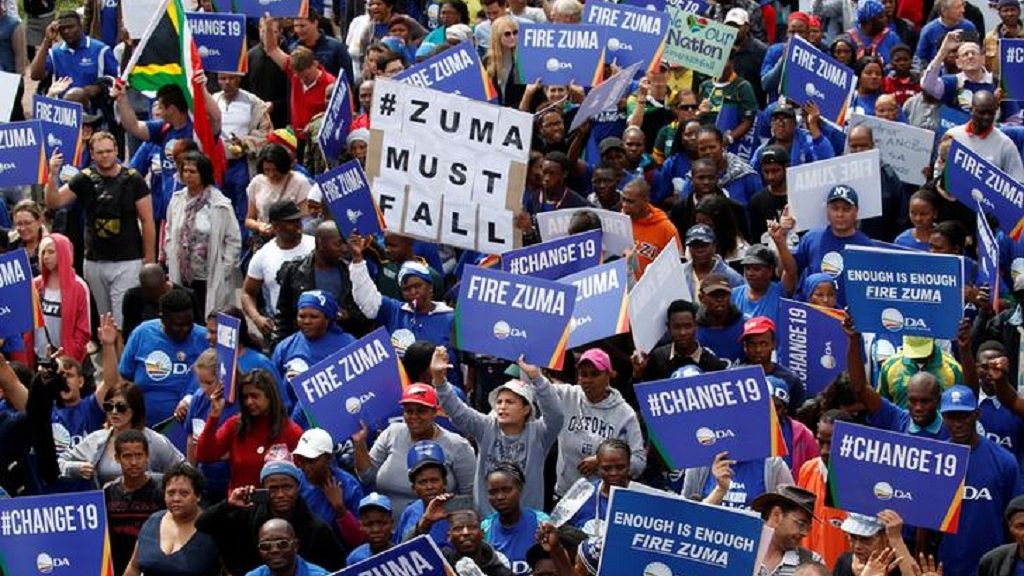
The answer may lie in the outcome of this weekend’s ANC presidential race that has Jacob Zuma’s ex-wife and preferred candidate Nkosazana Dlamini-Zuma taking on South Africa’s Deputy President Cyril Ramaphosa.
Ramaphosa is one of South Africa’s richest people and is seen to be a candidate who is investor friendly. He has promised to revive the economy and tackle corruption if elected president. A Ramaphosa ANC presidency might implement the dreaded recall.
Dlamini-Zuma on the other hand is perceived by many to be sympathetic to Jacob Zuma and the president’s safest bet against facing the legal consequences of his actions. While she has done her best to distance herself from her ex-husband, she has pledged to deliver the rapid economic transformation to the black community, a pledge that was made and unfulfilled by President Zuma.
South Africa’s opposition are seen to be favoring a Ramaphosa win with EFF’s Julius Malema predicting that the ANC Deputy President who was anointed by Mandela as his successor will win because Dlamini-Zuma despite her strong credentials is ‘surrounded by crooks’.



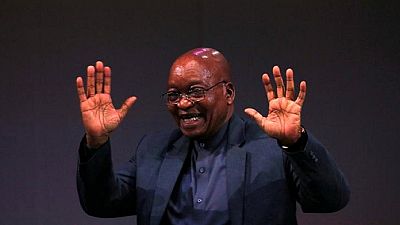

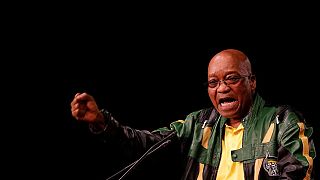
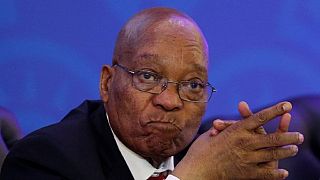
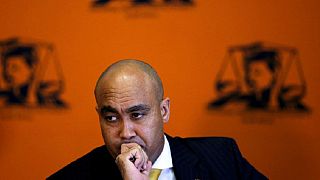

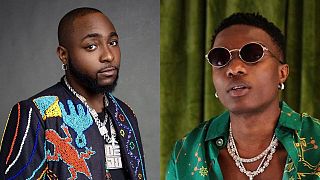


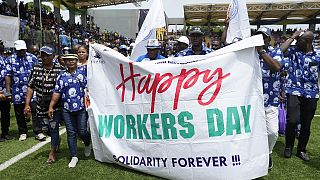

01:00
South African Police investigate alleged signature forgery by Zuma’s MK party
01:55
South Africa marks Freedom Day ahead of tough general election
02:20
South Africa to mark 30 years of freedom amid inequality and tense election ahead
Go to video
Repatriated South African apartheid-era artworks on display to celebrate 30 years of democracy
Go to video
Botswana rejects controversial UK proposal on asylum-seekers
01:10
Springboks confirm their Test fixture list for the rest of the year